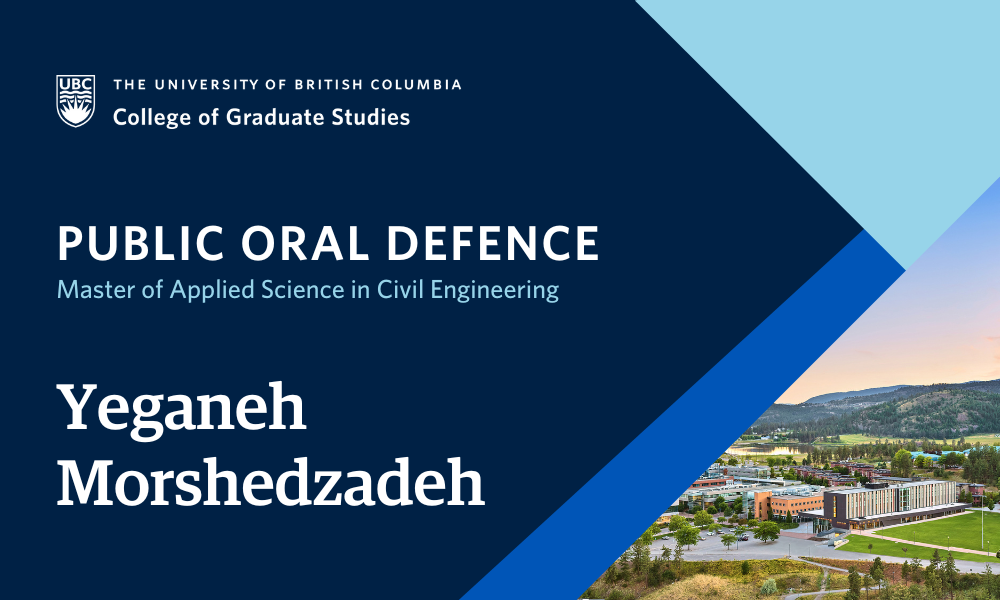
- This event has passed.
Thesis Defence: Using Big Data and Machine Learning for Microscopic Delay Modelling at Construction Work Zones
April 16, 2024 at 12:30 pm - 4:30 pm

Yeganeh Morshedzadeh, supervised by Dr. Suliman Gargoum, will defend their thesis titled “Using Big Data and Machine Learning for Microscopic Delay Modelling at Construction Work Zones” in partial fulfillment of the requirements for the degree of Master of Applied Science in Civil Engineering.
An abstract for Yeganeh Morshedzadeh’s thesis is included below.
Defences are open to all members of the campus community as well as the general public. Please email suliman.gargoum@ubc.ca to receive the Zoom link for this defence.
ABSTRACT
Work zones are lane closures essential to protect workers during highway maintenance and construction activities; however, they often lead to congested traffic movement, causing significant delays to traffic. One of the preliminary steps of managing and reducing this delay is to understand factors impacting delay and develop the ability to accurately predict delays. Given the rapid development of vehicle sensors and the availability of big data, Machine learning (ML) models are becoming increasingly popular in traffic flow prediction. Their ability to capture complex non-linear patterns can enhance predictions obtained using traditional simulation tools.
This thesis aims to explore using ML models to predict delays observed at work zones. This is achieved through developing data-driven predictive models that leverage the growing usage of large-scale real-world data in transportation. The vast dataset was constructed by integrating 15 million travel times observations from probe vehicles over a 700-km corridor with various factors such as weather conditions, work zone design, traffic conditions, and temporal elements gathered from a wide range of sources. The data was used to achieve two primary objectives: (i) identify relationships between various factors and work zone delay and (ii) compare the usage of ML algorithms in accurately predicting work zone delays.
To achieve the first objective, unsupervised clustering as well as ordinal logistic and mixed-effects regression were used. The findings highlight the proportional impact of length of transition areas and work zone on travel time and the significant effects of environmental factors such as temperature and wind speed on work zone delays.
To assess the use of ML models in predicting delays, a comparative evaluation of multiple techniques was conducted, highlighting the strengths and weaknesses of each approach.. This included artificial neural networks (ANN), decision trees, gradient boosting regression, support vector regression, and ridge regression. Among the models evaluated, the decision tree and ANN achieved the best overall performance with the lowest RMSE of 0.05 and 0.150 minutes and the highest R-squared value of 0.99 and 0.95, respectively.
The results offer insights that can inform operational strategies, improve work zone design, and optimize project scheduling, thereby reducing disruptions. This can further equip transportation agencies with tools to devise effective proactive traffic management plans and ensure construction productivity, cost efficiency, and worker safety.